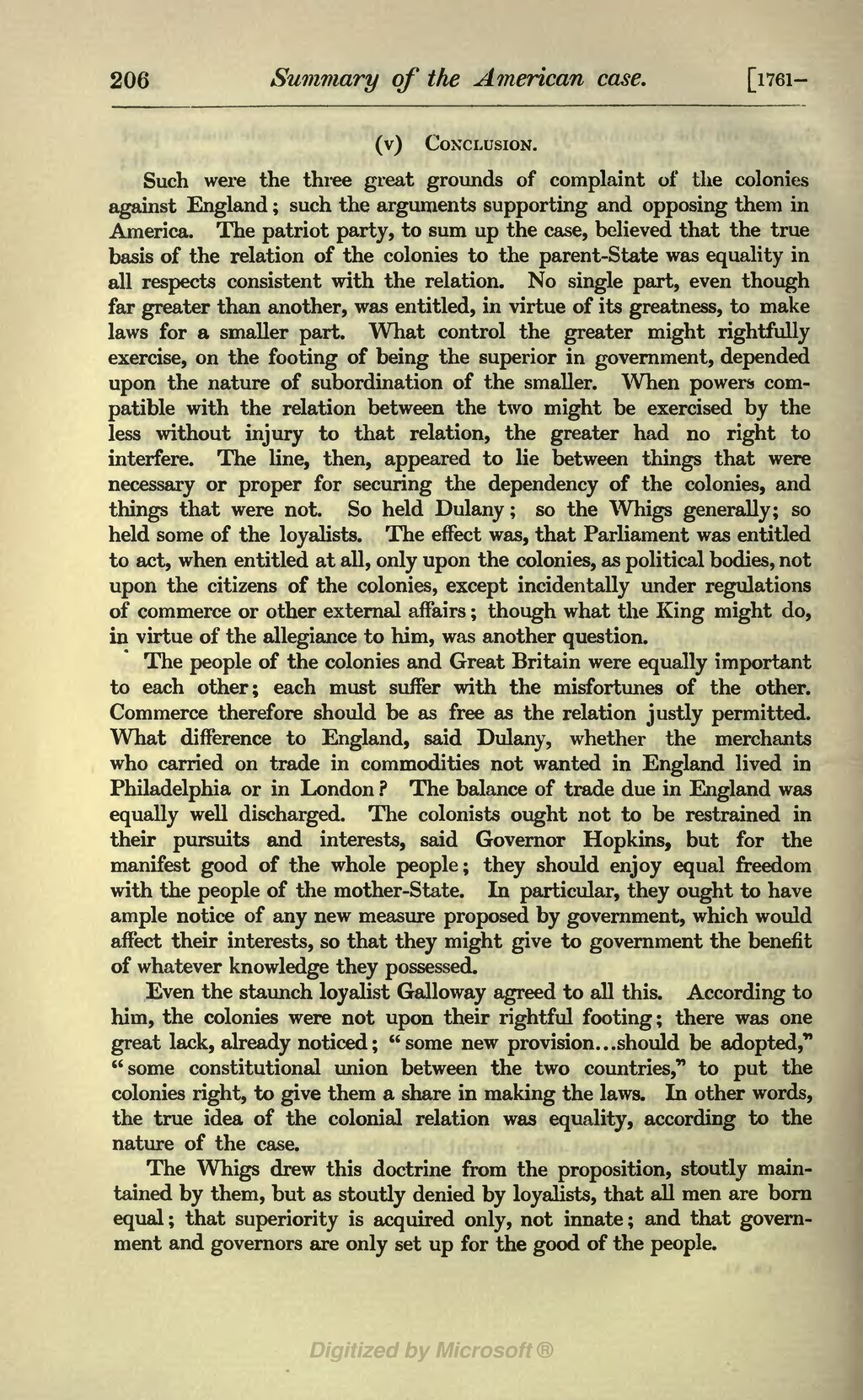206 Summary of the American case. [i76i- (v) CONCLUSION. Such were the three great grounds of complaint of the colonies against England ; such the arguments supporting and opposing them in America. The patriot party, to sum up the case, believed that the true basis of the relation of the colonies to the parent-State was equality in all respects consistent with the relation. No single part, even though far greater than another, was entitled, in virtue of its greatness, to make laws for a smaller part. What control the greater might rightfully exercise, on the footing of being the superior in government, depended upon the nature of subordination of the smaller. When powers com- patible with the relation between the two might be exercised by the less without injury to that relation, the greater had no right to interfere. The line, then, appeared to lie between things that were necessary or proper for securing the dependency of the colonies, and things that were not. So held Dulany ; so the Whigs generally; so held some of the loyalists. The effect was, that Parliament was entitled to act, when entitled at all, only upon the colonies, as political bodies, not upon the citizens of the colonies, except incidentally under regulations of commerce or other external affairs ; though what the King might do, in virtue of the allegiance to him, was another question. The people of the colonies and Great Britain were equally important to each other; each must suffer with the misfortunes of the other. Commerce therefore should be as free as the relation justly permitted. What difference to England, said Dulany, whether the merchants who carried on trade in commodities not wanted in England lived in Philadelphia or in London ? The balance of trade due in England was equally well discharged. The colonists ought not to be restrained in their pursuits and interests, said Governor Hopkins, but for the manifest good of the whole people ; they should enjoy equal freedom with the people of the mother-State. In particular, they ought to have ample notice of any new measure proposed by government, which would affect their interests, so that they might give to government the benefit of whatever knowledge they possessed. Even the staunch loyalist Galloway agreed to all this. According to him, the colonies were not upon their rightful footing; there was one great lack, already noticed; "some new pro vision... should be adopted," "some constitutional union between the two countries," to put the colonies right, to give them a share in making the laws. In other words, the true idea of the colonial relation was equality, according to the nature of the case. The Whigs drew this doctrine from the proposition, stoutly main- tained by them, but as stoutly denied by loyalists, that all men are born equal ; that superiority is acquired only, not innate ; and that govern- ment and governors are only set up for the good of the people.
Page:Cambridge Modern History Volume 7.djvu/238
This page needs to be proofread.
